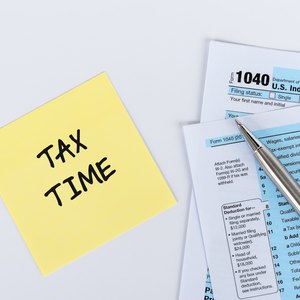
Tax season is tough enough without a pandemic sweeping the globe. The 2020 tax season for that 2019 tax return you have to file with the IRS has been peppered with new catch phrases, like “social distancing,” and they're becoming as common as “Uncle Sam.”
Rest assured that the U.S. Treasury Department is on top of all this. In an unprecedented move, Treasury Secretary Steven Mnuchin gave taxpayers a gift on March 17, 2020: The payment due date for taxes owed to the IRS has been pushed back 90 days, from April 15 to July 15, 2020. The move had significant bipartisan support from Congress, even in a heated election year.
The U.S. government has taken this step in response to the COVID-19 coronavirus that's been gripping the nation. It’s an effort to stem the financial impact on businesses and individual taxpayers as workers are forced to stay home and self-quarantine, and non-essential businesses are forced to temporarily close their doors to mitigate the spread of the disease.
Only Payments Were Affected At First
An important distinction was made when the Treasury Department first made this announcement on March 17. The payment date for taxes that are due was extended from April 15 to July 15, but the tax filing deadline was not pushed back. Mnuchin said on Tuesday, “All you have to do is file your taxes. You’ll automatically not get charged interest and penalties."
That, basically, was Uncle Sam’s gift to taxpayers. Your tax payments aren’t due by April 15, so interest and penalties on unpaid tax balances won’t begin to accrue for another 90 days. As for “automatically,” that can be taken verbatim. You don’t have to do anything or file any special paperwork to take advantage of this waiver.
Read More: Penalties for Late Tax Payments
Now Filing Is Covered, Too
Lawmakers and tax professionals were making noise after the initial announcement, demanding that the tax filing date must be pushed back as well because taxpayers and tax services are limited from getting together to prepare tax returns. Many tax professionals from coast to coast have been working from home this tax season. Mnuchin announced on Friday, March 20 that Tax Day 2020 will be postponed as well, to July 15, 2020. The tax filing deadline for returns has also been pushed back three months.
And here’s a bit of good news if you’re one of those who’s been personally affected by COVID-19 and you don’t see how you can possibly get that tax return to the IRS, even by July. You can still file Form 4868 with the IRS, asking for an extension of time until Oct. 15.
Normally, you’re supposed to make an estimated payment when you file the form for an extension to cover any taxes that might potentially be due, but that’s not necessary in 2020.
Who Is Eligible?
The filing date extension applies to all taxpayers, but the payment extension isn’t quite that generous. Nonetheless, it should cover most Americans.
Individuals can defer payment of up to $1 million in tax debts, and this includes small businesses and pass-through businesses like partnerships. This means that you’ll have to cough up that extra dollar by April 15 if you prepare your tax return to realize that you owe the IRS $1,000,001. Corporations can postpone payment of up to $10 million.
MarketWatch estimates that as much as $300 billion in tax payments will be delayed, so Uncle Sam is really tightening his belt.
What Payments Are Due and When?
Make no mistake – this doesn’t mean that you don’t owe any tax on your 2019 tax return. Your tax debt isn’t being eliminated. You just don’t have to part with the money until July 15, and you won’t pay the usual interest and penalties as long as you pay by that time: 0.5% each month that your balance goes unpaid, up to 25%. Interest is normally charged at 3% over the federal short-term rate.
The extension also applies to the April 15, 2020 estimated tax payment deadline for tax year 2020. Those payments would normally have been due by that date from self-employed taxpayers. That’s not required until July 15, 2020 now, either.
Read More: What Are Self-Employed Taxes?
Refunds Are Still Coming!
Of course, a significant number of Americans paid their taxes in the form of withholding from their paychecks every pay period throughout 2019. Many of them wouldn’t have owed the IRS anything on April 15 anyway, so this all might just seem like a big yawn and a sigh to them.
But consider this: Those late-payment penalties apply if at least 90% of your ultimate tax owed isn’t withheld from your pay during the year, or if you fail to send in at least 90% of what you owe in quarterly estimated payments. You won’t be hit with interest and penalties this year if your withholding or estimated payments fell a bit short, as long as you make up the difference by July 15.
And the IRS is still up and running and processing refunds if you paid in too much through withholding or estimated payments in 2019. The same applies if you’re eligible for any refundable tax credits that will put money in your pocket during this difficult time. If you’re due a refund, you’ll get it – all the more reason to file your return as soon as you can.
Read More: How to Track Down Your Tax Refund
State Deadlines
Check with your state’s revenue department to find out if it’s extending its deadlines for payment or filing of state tax returns as well. Maryland and Connecticut are pushing back their payment deadlines, and California has postponed both filing and payment due dates. Oregon goes by federal deadlines. Forbes offers an online list of where various states stand, with a promise that it’s being updated regularly.
References
- Bloomberg: Treasury Offers 90 Days More to Pay Taxes, Says File by April 15
- Forbes: In Response to Coronavirus, Mnuchin Confirms Tax Relief But Does Not IRS Filing Season
- The Hill: Lawmakers Welcome Treasury Move to Extend Tax Deadlines
- The Hill: Mnuchin – Individuals Will Be Able to Defer Up to $1M in Tax Payments Due to Coronavirus
- MarketWatch: The IRS Is Postponing Tax Payment Deadlines During the Coronavirus Outbreak – What That Means for Your Taxes
- CPA Practice Advisor: IRS Extends 2020 Tax Payment Deadline to July 15 – Coronavirus Response
- CNBC: Lawmakers Push to Extend Tax Filing Season to July 15
- IRS: Form 4868 Application for Automatic Extension of Time to File U.S. Individual Income Tax Return
- IRS: Topic No. 653 IRS Notices and Bills, Penalties, and Interest
- IRS: Payment Deadline Extended to July 15, 2020
- Forbes: UPDATED State and Federal Tax Office Closings, Filing Delays and Extensions Due to Coronavirus
- IRS. "Tax Day Now July 15: Treasury, IRS Extend Filing Deadline and Federal Tax Payments Regardless of Amount Owed." Accessed April 16, 2020.
- Internal Revenue Service. "IRS Extends More Tax Deadlines to Cover Individuals, Trusts, Estates Corporations and Others." Accessed April 16, 2020.
- Internal Revenue Service. "Treasury, IRS Launch New Tool to Help Non-Filers Register for Economic Impact Payments." Accessed April 16, 2020.
- IRS. “Common Penalties for Individuals.” Accessed April 16, 2020.
- IRS. “Topic No. 653 IRS Notices and Bills, Penalties, and Interest Charges.” Accessed April 16, 2020.
- Tax Policy Center. “What Are Pass-Through Businesses?” Accessed April 16, 2020.
- IRS. “Extension of Time to File Your Tax Return.” Accessed April 16, 2020.
- Internal Revenue Service. "Filing and Payment Deadlines Questions and Answers." Accessed April 16, 2020.
- IRS. "IRS Unveils New People First Initiative; COVID-19 Effort Temporarily Adjusts, Suspends Key Compliance Program." Accessed April 16, 2020.
- IRS. “Get Your Refund Faster: Tell the IRS to Direct Deposit Your Refund to One, Two, or Three Accounts.” Accessed April 16, 2020.
Writer Bio
Beverly Bird has been writing professionally for over 30 years. She is also a paralegal, specializing in areas of personal finance, bankruptcy and estate law. She writes as the tax expert for The Balance.

